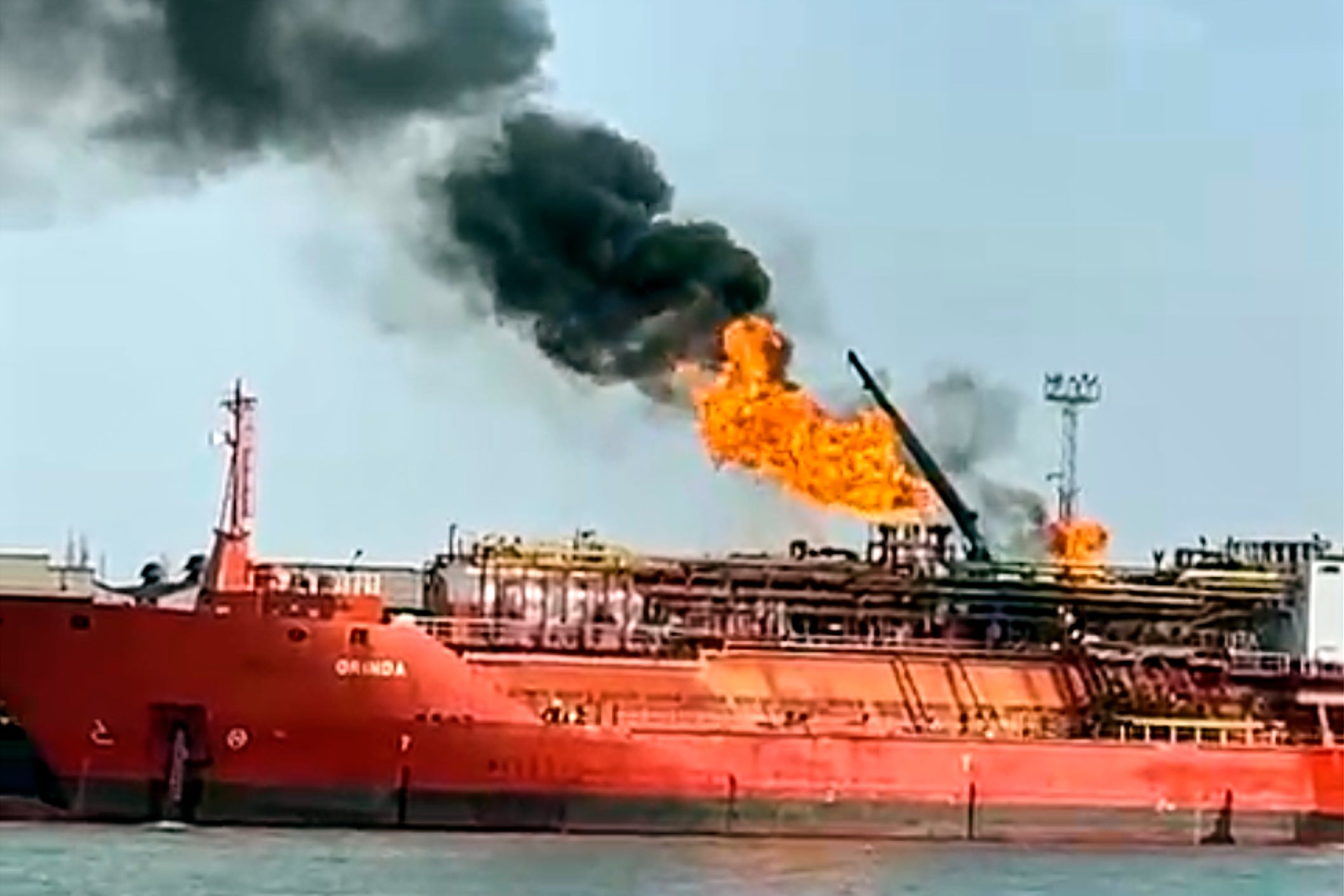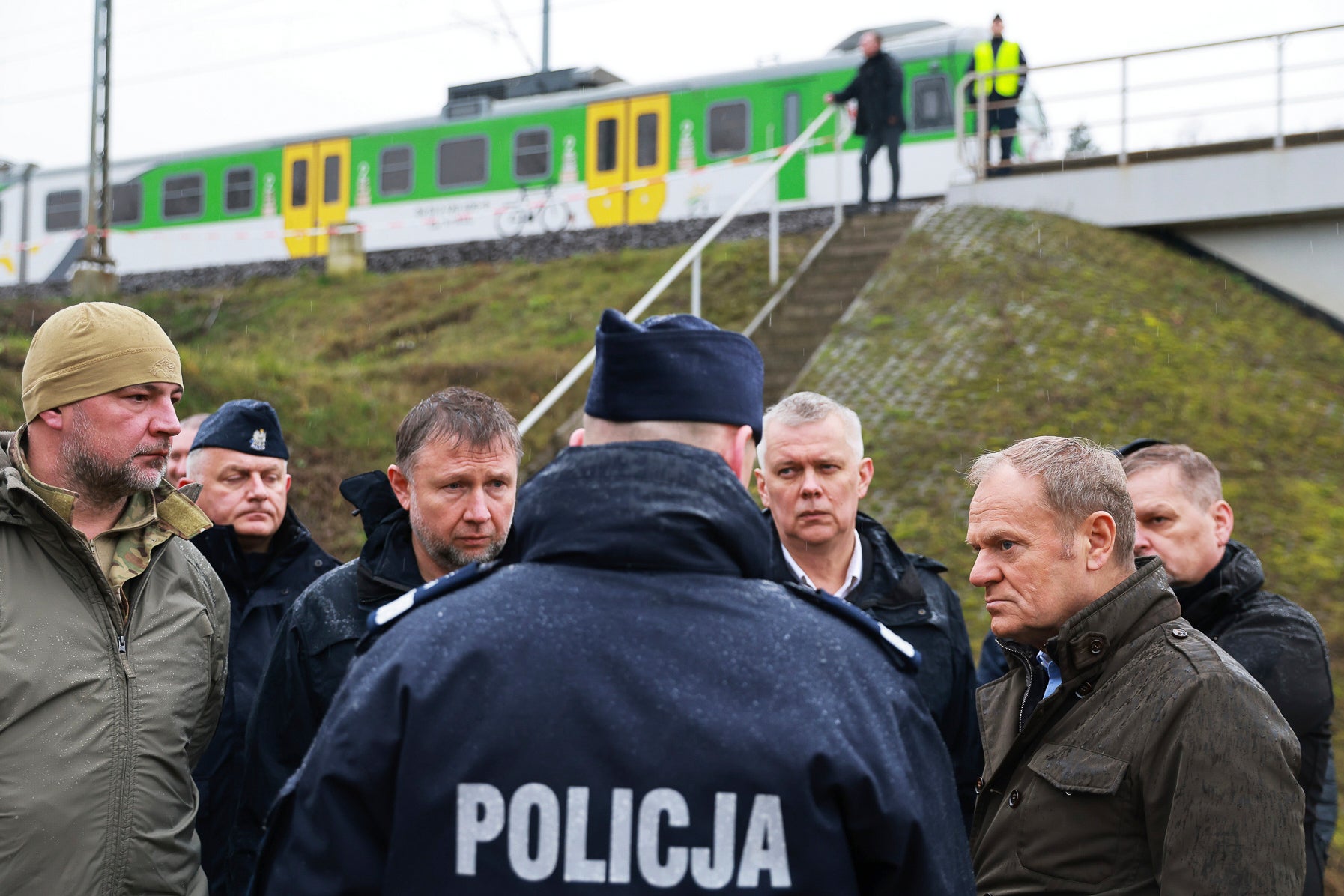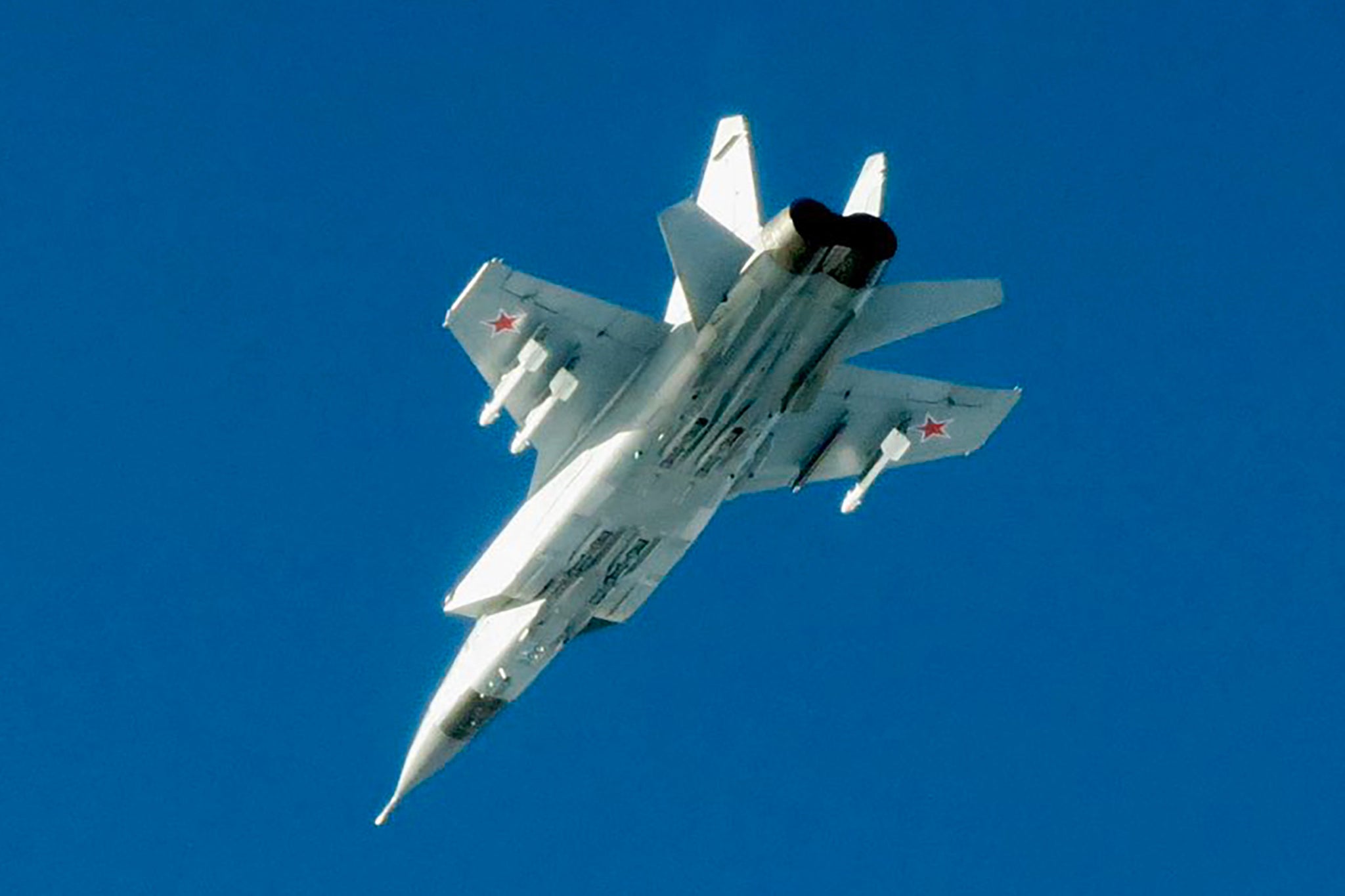Russia stands accused of sabotage on Poland’s railways. The Kremlin attacked a gas-loaded tanker on the Romania border, forcing the evacuation of several villages in the country. Moscow has repeatedly flown drones into European airspace, and jets over Estonia.
These, plus waves of sabotage, cyber attacks, and social media propaganda, are acts of war. But they are all part of a hybrid war. And this malevolent blend allows Vladimir Putin to punch well above his weight.
Russia is the prime suspect in Monday’s bombing of the Warsaw to Lublin railway line, a main artery from Poland to Ukraine.
Poland’s security ministry said that “everything points to Russian sabotage”, after the blast on the railway and another attack in which the rails on the same route were cut.

Polish prime minister Donald Tusk described the latest incident as an “unprecedented act”, and pinned the blame on two Ukrainians collaborating with Russia who are now believed to have fled to Belarus.
Tusk is angry – but these attacks are not unprecedented. And he knows better than any European leader what Russia is up to, after Poland was penetrated by at least 23 Russian drones in September.
These weapons were not armed. But they fly only in one direction. They are not aircraft that probe defences and then fly home – they are, in effect, kinetic bombs.
Like the waves of arson attacks on aircraft and warehouses – even a plot against a Russian-born London restaurateur – the Polish operations could have killed people. They were, by any definition, acts not just of sabotage but of terror.
This week, Russia carried out a drone assault on a Turkish-flagged liquid natural gas carrier just inside Ukrainian waters, which has hit Romania hard. Footage of flames billowing from the ship went around the world.

But Nato is coy about all this.
Britain has designated Palestine Action as a terrorist organisation, and arrested hundreds of people for protesting against the designation, which was provoked by the movement’s non-violent paint attacks on Ministry of Defence property.
British agents working for Russia have not been similarly charged or accused of terrorism. But recent plots uncovered include an arson attack against a Ukrainian business in Britain, for which five men were convicted, and a plan to kidnap the owner of Mayfair’s Hide restaurant and burn it down.
According to a report from the Centre for International and Strategic Studies, as of March this year, there had been at least 70 known acts of sabotage attributed to Russia across Europe since Putin’s full-scale invasion of Ukraine in 2022. Other sources have the number higher.
“Roughly 27 per cent of the attacks were against transportation targets (such as trains, vehicles, and airplanes), another 27 per cent were against government targets (such as military bases and officials), 21 per cent were against critical infrastructure targets (such as pipelines, undersea fiber-optic cables, and the electricity grid), and 21 per cent were against industry (such as defence companies),” the report said.
It went on to point out that “many of these targets had links to Western aid to Ukraine”. The most common tactic “involved explosives and incendiaries”, but there were also more acts of violence involving clubs and knives, sea anchors to tear up fibreoptic cables, and the weaponisation of illegal immigrants.

Tom Tugendhat, the former security minister, said the attack on the gas tanker on Romania’s border was tantamount to Russia “attacking Nato”. “Putin is expanding his Ukrainian war to dissuade us from defending European freedom,” he warned.
“Russia’s violence across Europe isn’t just through war, but the sponsorship of sabotage and murder. It is now a state sponsor of terrorism,” he told The Independent.
France, meanwhile, has begun talks with Ukraine to supply 100 Rafale fighter jets – but a deal is unlikely to be struck before next year.
Europe and the UK have stepped up military support for Ukraine, to offset Donald Trump’s decision to stop all aid to the country. But the latest Russian attacks inside Poland – a European Union nation that’s also a fast-growing power in Nato, and, like Romania, is a near-frontline state with Russia – are yet more signs that Europe’s pushback may need to get physical.

